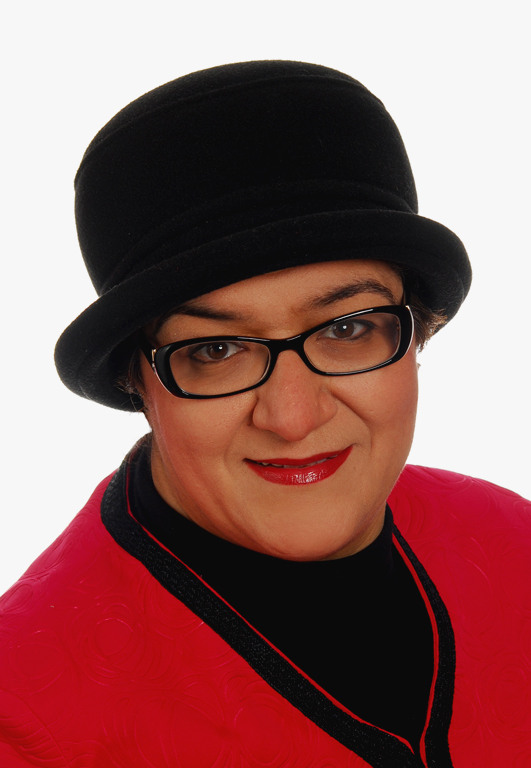Where does the signal processing begin in Impedance Spectroscopy?
Prof. Olfa Kanoun
Measurement and Sensor Technology, Electrical and Information Technology, TU ChemnitzSignal Processing plays a key role in Impedance Spectroscopy for the extraction of specific information from impedance spectra which include in general diverse information inferring different phenomena taking place in the System Under Test (SUT), but also information about system geometry, contact effects and the measurement set-up itself. The suitable signal processing method should be in general chosen depending on the measurement task, accuracy requirements and also to the available resources for system design, such as storage capacity, measurement time and processing power. This is why we need to consider different methods which are supported by both mathematical and physical methods.
After a review of the challenges for signal processing and for system design in general, different approaches for signal processing in impedance spectroscopy are reviewed including the design of experiment, analysis and modelling and the extraction of specific information measurements of non-accessible quantities. The tutorial gives an outstanding overview for both beginners and experts.
Short biography:
 Prof. Dr.-Ing. Olfa Kanoun (Senior Member, IEEE) is a Full Professor of Measurement and Sensor Technology at Chemnitz University of Technology, Germany. She received her Ph.D. from the University of Bundeswehr, Munich, Germany, in 2001 and her diploma in electrical engineering and information technology from the Technical University of Munich, Germany, in 1995. She focuses on sensors, measurement systems, and measurement methods in her research. Since 2001 she has been developing new sensors and measurement solutions based on impedance spectroscopy in battery diagnosis, bio-impedance spectroscopy, inductive sensors, capacitive sensors, conductivity sensors, and material testing. She has deep expertise in energy harvesting and transmission and has developed, for many years, successfully flexible nanocomposite sensors for force, temperature, and humidity measurements. As a senior IEEE member, she volunteers for the Instrumentation and Measurement Society and for IEEE. In 2004 she founded an IEEE IM Chapter, and in 2019, she initiated the IMS Technical Committee TC-2 on Impedance Spectroscopy. Her main research areas are impedance spectroscopy, impedimetric sensors, energy harvesting, wireless sensors, and micro and nanosensors., and in 2014, she initiated a student branch at TU Chemnitz. She was co-chair of the Technical Committee on nanotechnology in instrumentation and measurement (TC 34). In 2001 she was cofounder of the international multi-conference on systems, signals, and devices (SSD), and in 2008 she initiated the annual International Workshop on Impedance Spectroscopy (IWIS). In 2015, she was awarded by the Tunisian ministry of social affairs for her scientific excellence and outstanding achievements
Prof. Dr.-Ing. Olfa Kanoun (Senior Member, IEEE) is a Full Professor of Measurement and Sensor Technology at Chemnitz University of Technology, Germany. She received her Ph.D. from the University of Bundeswehr, Munich, Germany, in 2001 and her diploma in electrical engineering and information technology from the Technical University of Munich, Germany, in 1995. She focuses on sensors, measurement systems, and measurement methods in her research. Since 2001 she has been developing new sensors and measurement solutions based on impedance spectroscopy in battery diagnosis, bio-impedance spectroscopy, inductive sensors, capacitive sensors, conductivity sensors, and material testing. She has deep expertise in energy harvesting and transmission and has developed, for many years, successfully flexible nanocomposite sensors for force, temperature, and humidity measurements. As a senior IEEE member, she volunteers for the Instrumentation and Measurement Society and for IEEE. In 2004 she founded an IEEE IM Chapter, and in 2019, she initiated the IMS Technical Committee TC-2 on Impedance Spectroscopy. Her main research areas are impedance spectroscopy, impedimetric sensors, energy harvesting, wireless sensors, and micro and nanosensors., and in 2014, she initiated a student branch at TU Chemnitz. She was co-chair of the Technical Committee on nanotechnology in instrumentation and measurement (TC 34). In 2001 she was cofounder of the international multi-conference on systems, signals, and devices (SSD), and in 2008 she initiated the annual International Workshop on Impedance Spectroscopy (IWIS). In 2015, she was awarded by the Tunisian ministry of social affairs for her scientific excellence and outstanding achievements
< Back

